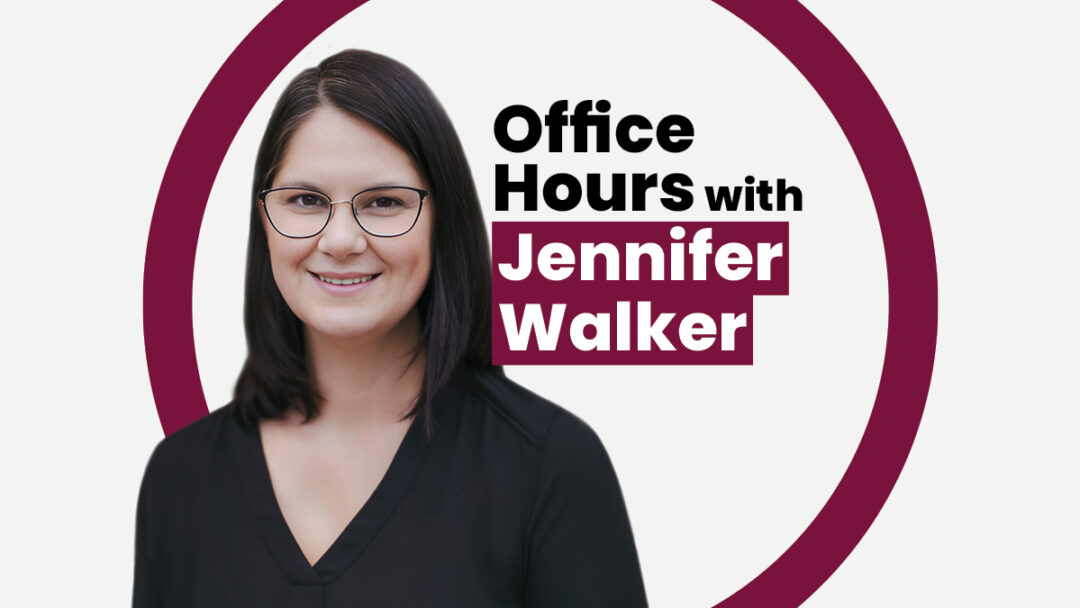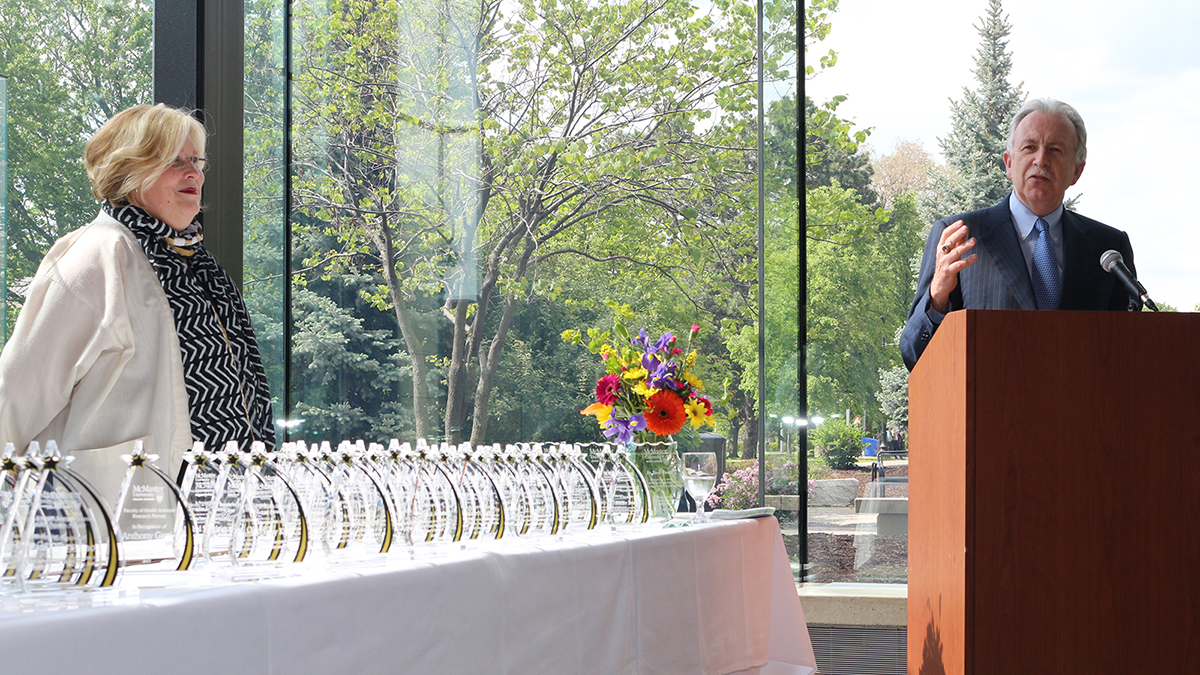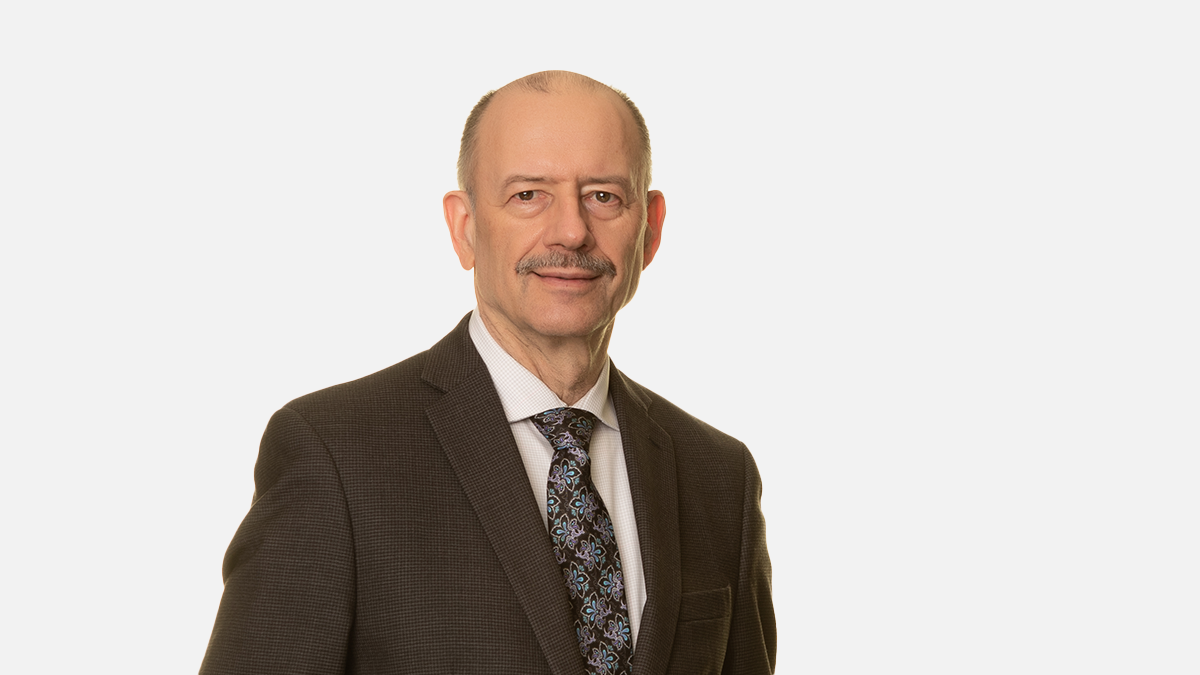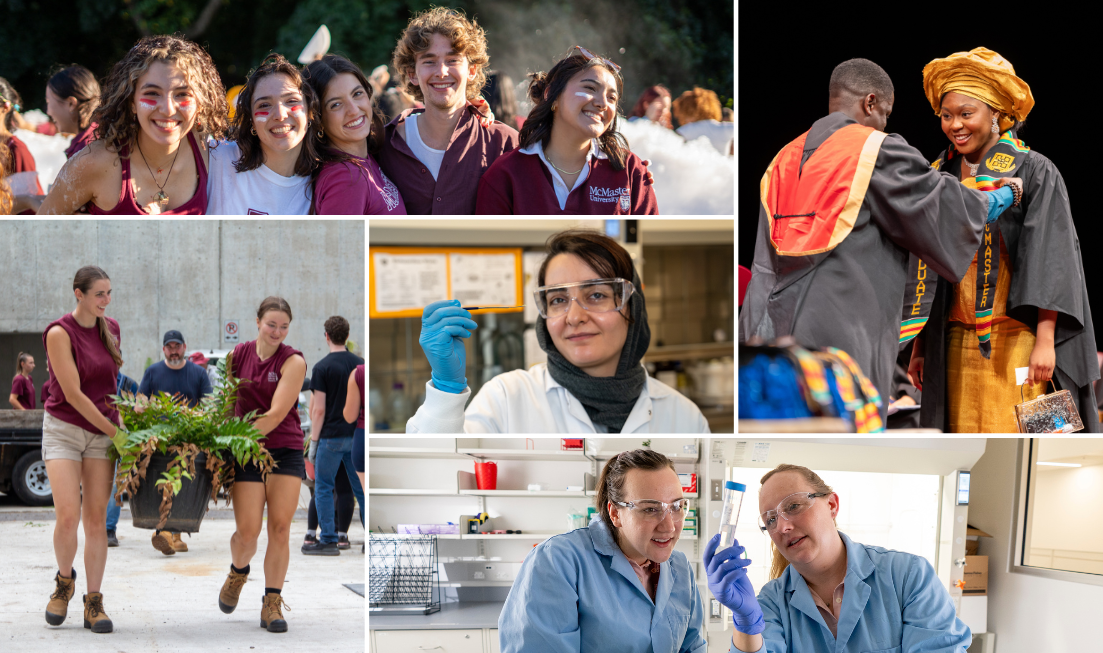Office Hours with Jennifer Walker

The principle of “nothing about us without us” is one Jennifer Walker knows well. As a Haudenosaunee woman and member of the Six Nations of the Grand River, she has spent her life learning about Indigenous traditions that, as an epidemiologist, she carries throughout her work to improve health outcomes and self-determined health care for Indigenous peoples.
“When I was doing my PhD, there were no Indigenous faculty members in that department and certainly no one who was doing epidemiology with an interest in Indigenous health,” says Walker. “When I found a way for those two things to come together, it made so much sense to me.”
Walker is now an associate professor with McMaster University’s Department of Health Research Methods, Evidence, and Impact. She holds a Canada Research Chair in Indigenous Health Data and Aging and leads the research hub at McMaster’s Indigenous Health Learning Lodge.
“I do a lot of research around Indigenous-led use of data and thinking through how to build evidence for health decision making that prioritizes Indigenous self-determination.”
‘Ancestors teaching us’
In her research pursuits, Walker works side-by-side with Indigenous groups to help examine data through her unique lens. She recently collaborated with a group based out of Northern Ontario to better understand data surrounding mortality.
“The way that it was approached was that we need to understand this data because it’s really our own family members and ancestors teaching us about how to live in the future by showing us the data about how they died.”
Knowledge keepers hold an important role in Indigenous communities. They maintain traditional knowledge, cultural practises and oral history. Their perspective is essential to the work Walker does.
She remembers working on the creation of a cognitive assessment tool that would be used to check for conditions such as dementia. During the pilot testing phase, researchers used a comb as one of the identifiable items, but instead of using the comb as one might expect, participants avoided it all together.
“We learned from knowledge keepers that this was because there is a long history of researchers coming, taking hair samples, and not returning the information or results. So, it triggered trauma. We had to change that item to something culturally safe like a spoon, which doesn’t carry the same historical trauma.”
This delicate approach is grounded in Indigenous methodologies, with Walker using health services, and research and epidemiology methods as tools to answer data driven questions.
“One of the important aspects of Indigenous research is that it’s relational. We’re doing things in a respectful way. We’re honouring the self determination of nations, and we are approaching research from strengths-based perspectives.”
Evolving Indigenous health care
Walker envisions a health-care system where Indigenous communities lead and own the research process. This means having full control over the data and decision-making based on their unique cultural contexts and priorities.
“Things have to happen to make this work. There has to be health transformation from the First Nations and that has to be self-determined health care. This has to happen at the same time as self-determined research on health care,” Walker says.
Walker hopes to build up partnerships among like-minded colleagues to further develop strategies that can benefit Indigenous communities and peoples across Canada.
“Strengthening and expanding collaborative networks is a key goal of mine. By fostering partnerships between Indigenous communities, academic institutions, and health-care organizations, we can aim to create a supportive ecosystem for Indigenous health research.”
Dept. HEI, Faculty & Staff, Office HoursRelated News
News Listing

Faculty of Health Sciences 2024: The year in awards
#Shorts, Faculty & Staff, Feature
December 10, 2024

McMaster professor emeritus named recipient of Canadian Blood Services Lifetime Achievement Award
Faculty & Staff, Leadership
December 5, 2024

